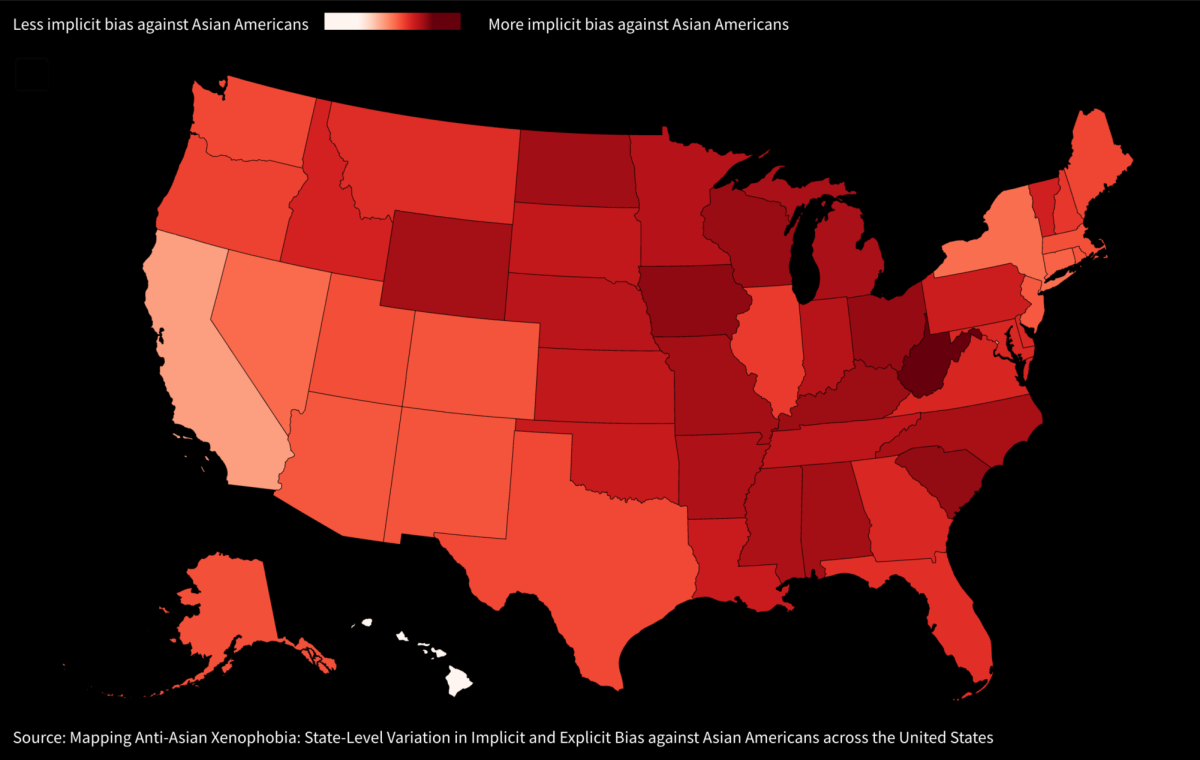Republican-majority and swing states are more prone to stereotyping Asians and Asian Americans as foreigners, according to a study led by NYU Silver School of Social Work Ph.D. candidate Nari Yoo. The number of people of Asian descent in a state was also found to affect racial biases.
“Perpetual foreigner stereotyping is that, regardless of their immigration status, how long they’ve lived in the United States and how many immigrant generations they are, they are treated like foreigners because of their appearance,” Yoo said. “For example, they’re asked, ‘Oh, where are you really from,’ or, ‘Your English is really good,’ which is more related to microaggression rather than overt racism.”
The study showed that there is significant unconscious bias against Asians and Asian Americans in states like West Virginia, Iowa, South Carolina, Ohio and Wisconsin. Researchers found that this bias is influenced by factors like residential racial segregation, immigration patterns, political attitudes, intergroup interactions and socioeconomic conditions.
States with greater Asian populations and higher median ages, however, showed lower levels of conscious bias against Asian people. These included Hawaii, the District of Columbia, Nevada, California and Texas.
Yoo said the difference in bias levels may be related to U.S. education policies and how Asian American history is taught in classrooms or extracurricular activities in certain states.
Yao Li, an assistant professor in Florida State University’s Department of Sociology who was not involved in the study, said that anti-Asian sentiment and derogatory stereotypes like “yellow peril” and “forever foreigner” have increased since the start of the pandemic.
Other co-authors of the study included University of Toronto-St. George professor Harvey Nicholson Jr., Silver professor Doris Chang and Steinhardt professor Sumi Okazaki. The study was conducted under NYU’s Asian and Black Americans, Racism, and Allyship project, which Okazaki and Chang are both part of.
The researchers used data collected between 2018 to 2022 from the Asian American Implicit Association Test, a test which can be used to measure an individual’s associations to stereotypes. The researchers took the average of individual scores to determine conscious and unconscious biases against Asian Americans at the state level.
The study cited Thierry Devos, a faculty member at San Diego State University, who researched how perceptions of Asian Americans compared to those of European Americans in ethnically diverse metropolitan areas.
“There needs to be some kind of structural change that needs to take place for those biases to decline,” Devos said in an interview with WSN. “The goal is not even to change the biases. It’s probably to foster a more inclusive, diverse society where everyone is seen as belonging.”
Contact Aashna Miharia [email protected].


























































































































































